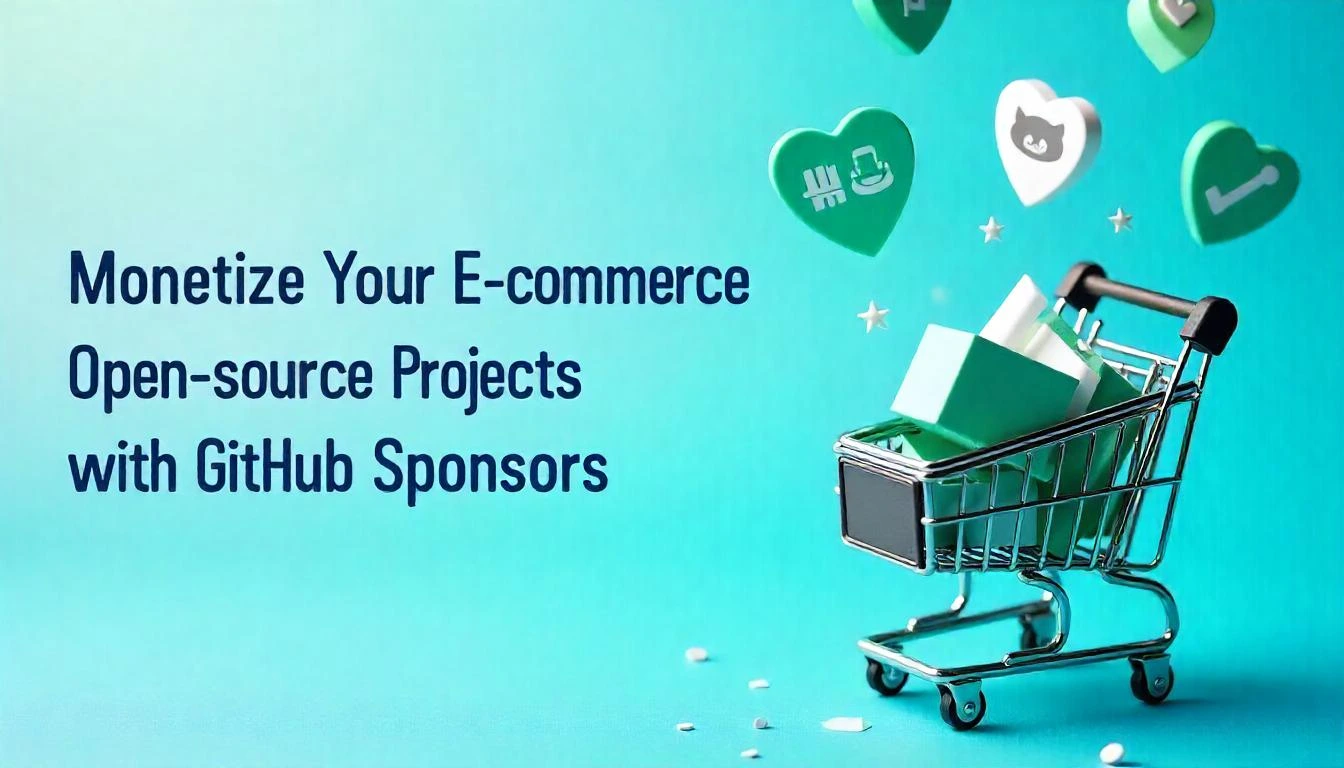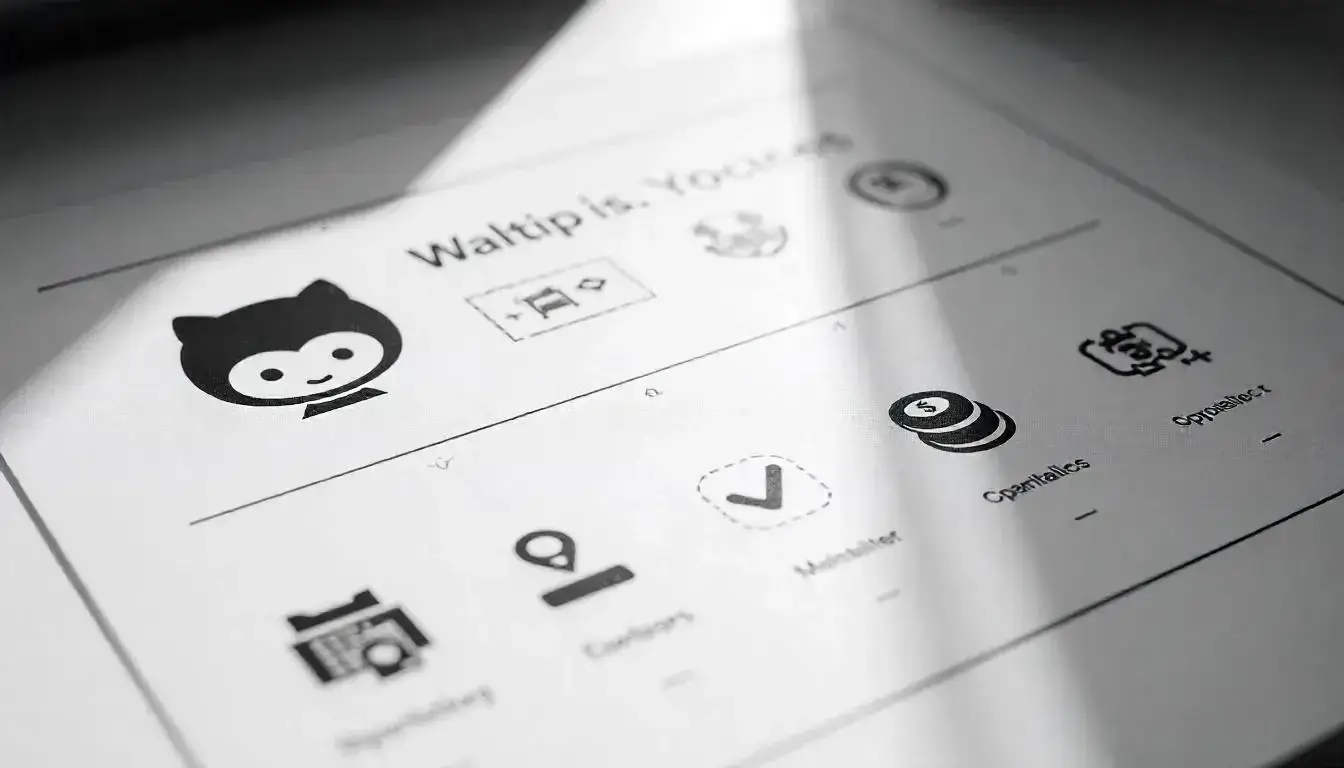Monetize Your E-commerce Open-source Projects: A Beginner’s Guide to GitHub Sponsors

Introduction
Developing open-source e-commerce tools is a rewarding endeavor, but maintaining these projects requires consistent effort and resources. GitHub Sponsors provides a way for developers to fund their work by allowing community members and businesses to contribute financially. In this guide, we’ll explore how you can use GitHub Sponsors to monetize your e-commerce website projects on GitHub effectively.
Why Monetize Your Open-source E-commerce Projects?
Building an e-commerce website GitHub project often involves creating plugins, themes, or tools that improve user experiences or simplify development. While these contributions benefit the community, the costs of time, hosting, and updates can quickly add up.
Monetizing your open-source projects can:
- Provide financial support to sustain and scale your work.
- Enable you to dedicate more time to your projects.
- Attract collaborators who share your vision.
- Encourage community engagement and long-term support.
Success Story: Alex, a solo developer, transformed his e-commerce checkout plugin into a thriving, community-backed project with GitHub Sponsors. His story inspires developers worldwide.
What is GitHub Sponsors?
GitHub Sponsors is a platform that allows developers and organizations to receive financial contributions for their open-source work. It’s a direct way for supporters to fund your projects without intermediaries. Contributors can subscribe monthly or make one-time payments.
Benefits of GitHub Sponsors:
- Visibility: Your sponsorship profile is integrated directly into your GitHub repositories.
- Flexibility: Multiple tiers of sponsorship with custom benefits.
- Zero Fees: GitHub waives platform fees, ensuring you receive the full amount.
- Recognition: Sponsors get a badge, boosting their visibility in the community.
Steps to Set Up GitHub Sponsors
To start using GitHub Sponsors for your e-commerce website GitHub projects, follow these steps:

1. Join the GitHub Sponsors Program
- Navigate to the GitHub Sponsors page and sign up.
- Complete the onboarding process, including verifying your identity and setting up a bank account for payouts.
- Add a profile description that highlights your open-source work and its impact.
2. Enable Sponsorship in Your Repository
- Go to your e-commerce project repository on GitHub.
- Click on Settings > Sponsorships.
-
Follow the prompts to add a
FUNDING.ymlfile in the.githubfolder. Example:1 2
github: [your-github-username] custom: [https://yourwebsite.com/donate]
- Save and commit the file. Your Sponsor button will now appear on your repository.
3. Create Sponsorship Tiers
- Define clear tiers with benefits for sponsors. For example:
- Bronze ($5/month): Name recognition on your website.
- Silver ($20/month): Early access to features.
- Gold ($50/month): Priority support and feature requests.
4. Promote Your Sponsorship Page
- Add links to your GitHub Sponsors page on your website, blog, and social media.
-
Create a README badge to showcase sponsorship:
1

Monetizing E-commerce Tools and Plugins
Open-source e-commerce tools like themes, checkout plugins, and analytics dashboards are popular on GitHub. Here’s how to monetize them effectively:
1. Offer Exclusive Features
- Create a free base version of your tool and reserve advanced features for sponsors.
- Example: A checkout plugin that includes multi-currency support for sponsors only.
2. Provide Premium Support
- Offer sponsors priority bug fixes, custom integrations, or installation guides.
- Use GitHub Discussions or a dedicated Slack channel for real-time support.
3. Bundle Sponsorships with Merchandise
- For higher-tier sponsors, include branded merchandise like t-shirts, mugs, or stickers.
4. Host Webinars and Tutorials
- Teach your community how to use your tool effectively through exclusive webinars.
- Share insights on improving e-commerce websites built on GitHub.
Building a Community and Contributor Base
The success of an open-source project depends on its community. Here’s how to build and nurture one:

1. Engage with Your Community
- Use GitHub Discussions to interact with users and gather feedback.
- Acknowledge contributors in your README or on your website.
2. Encourage Contributions
- Create a
CONTRIBUTING.mdfile outlining how others can help. - Label beginner-friendly issues with tags like
good first issueto attract new contributors.
3. Reward Active Contributors
- Recognize active contributors with badges, shoutouts, or small gifts.
- Offer them free sponsorship perks for their contributions.
4. Leverage Social Media
- Share updates and milestones on platforms like Twitter, LinkedIn, or Reddit.
- Create engaging content like progress threads or tutorials related to your e-commerce website GitHub project.
5. Collaborate with Influencers
- Partner with e-commerce bloggers or GitHub influencers to highlight your project.
- Guest post on popular blogs or websites related to e-commerce and open-source development.
Best Practices for Success
To maximize the impact of GitHub Sponsors on your e-commerce projects, follow these tips:
1. Keep Your Repository Organized
- Use a clean structure with detailed documentation.
- Include installation instructions, examples, and FAQs.
2. Be Transparent
- Share how sponsorship funds are used (e.g., for development, hosting, or tools).
- Post regular updates on project progress.
3. Focus on Value
- Regularly update your tools with new features and bug fixes.
- Ensure your project is compatible with the latest e-commerce trends and technologies.
4. Stay Consistent
- Engage with your sponsors and contributors consistently.
- Address issues and pull requests promptly.
5. Celebrate Milestones
- Thank your sponsors publicly when you hit milestones.
- Share stories of how your project has helped others.
Frequently Asked Questions (FAQs)
How can I promote my GitHub Sponsors page?
- Use social media platforms like Twitter and LinkedIn.
- Include sponsorship links in your repository and personal website.
- Share success stories and updates regularly.
What are the benefits of GitHub Sponsors for e-commerce developers?
- Provides funding to maintain and scale your projects.
- Builds a community of supporters and contributors.
- Enhances visibility and credibility in the open-source ecosystem.
Conclusion
Using GitHub Sponsors to fund your e-commerce website GitHub projects is an excellent way to sustain your work while building a thriving community. By offering value, engaging with users, and promoting your sponsorship page effectively, you can turn your passion for open-source e-commerce development into a rewarding endeavor.
Are you ready to start your GitHub Sponsors journey? Take the first step today and watch your e-commerce project grow!
Related Posts
How Electronic Commerce (E-Commerce) is Transforming Retail in 2025 Why Ecommerce Business Is the Best Startup Option Today Shopify Website Builder vs Competitors: Which One Wins? Top B2B Ecommerce Solutions for 2025: Powering Your Business Growth Top 10 eCommerce Web Design Agencies in 2025: Who’s Leading the Game?


Leave a comment